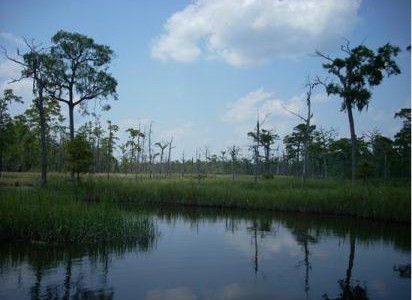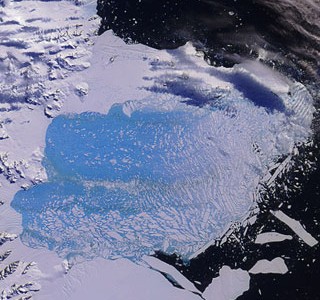Oct 2, 2021 The annual global mean temperature anomaly is an important and highly publicized index of climate change. Changes in the global mean temperature are a result of an energy imbalance in the Earth system. Over the past 150 years, human emission of greenhouse gases has led to increased global temperatures with the last … Continued
“Glaciers in the Andes and Changing Climates” with Carly Peltier
Carly Peltier is a Ph.D. candidate in the Department of Earth and Environmental Sciences. She earned her B.A. from Mount Holyoke College in 2015 where she double majored in Geology and Economics. She is interested in studying glacier and climate changes of the past in order to provide the context for current change. To do … Continued
“Teaching with Your Local River: The Hackensack Past, Present, and Future”
From the Ice Age to Sea Level Rise—Connecting the Hackensack River’s Past, Present, and Future Organized by Dr. Michael J Passow Supported by the Robert and Catherine Murray Charitable Trust 10 Sep 2016 With support from the Robert and Catherine Murray Charitable Trust, we are developing a suite of educational resources to … Continued
“Studying phytoplankton adaptations to different marine environments” with Solange Duhamel & Andy Juhl
“Studying Phytoplankton Adaptations to Different Marine Environments” with Solange Duhamel & Andy Juhl Originally presented 7 May 2016 Abstract: Phytoplankton are microscopic plants that float in the water and use sunlight, CO2 and nutrients to grow: like trees on land, they are primary producers at the base of the food web. They are essential to … Continued
“Impact of CO2 on the Earth’s Environment: Science behind the Paris Climate Accord” with Taro Takahashi (19 Mar 2016)
“Impact of CO2 on the Earth’s Environment: Science behind the Paris Climate Accord” with Taro Takahashi Originally presented 19 Mar 2016 Workshop funded in part by NOAA Award Number NA15NOS0080223 through the National Ocean Service We are honored to welcome back to E2C Dr. Taro Takahashi, the Ewing Lamont Research Professor and one … Continued
“Discover the Polar Explorer: Sea Level Rise App” with Margie Turrin & Dave Porter (5 Mar and 9 Apr 2016)
Explore sea level change using our new interactive tool – “Polar Explorer: Sea Level” Margie Turrin and Dave Porter Originally presented 5 Mar 2016 at Lamont and 9 Apr 2016 at the Morningside Campus Development of the Polar Explorer: Sea Level app funded by the NSF under Cooperative Agreement No. DUE-1239783. Workshop funded in part … Continued
“Trees, Climate, and Societal Relevance: A Case Study in Mongolia” with Caroline Leland and Mukund Palat Rao (Sep 2014)
“Trees, Climate, and Societal Relevance: A Case Study in Mongolia” Guest Scientists: Caroline Leland and Mukund Palat Rao Originally presented 20 Sep 2014 … Continued
“How does the land affect climate?” with Alexis Berg (10 Jan 2015)
“How Does the Land Affect Climate?” with Alexis Berg Originally presented 10 Jan 2015 … Continued
“The Source and Solution to Groundwater Arsenic Contamination” with Benjamin Bostick (28 Mar 2015)
The Source and Solution to Groundwater Arsenic Contamination Guest Scientist: Benjamin Bostick (Image credit: G. Hofer) Originally presented: 28 Mar 2015 Abstract: Arsenic is one of the most ubiquitous contaminants in groundwater and a major cause of disease worldwide. We will discuss reasons that specific areas have arsenic contamination, why those areas are at risk, … Continued
“Ocean Acidification and Its Effects on Marine Life” with Taro Takahashi (7 Mar 2015)
“Ocean Acidification and Its Effects on Marine Life” with Taro Takahashi Originally presented 7 Mar 2015 Dr. Taro Takahashi is the Ewing Lamont Research Professor at the Lamont-Doherty Earth Observatory, Columbia University. He is the Principal Investigator in Lamont’s Carbon Dioxide Research Group (http://www.ldeo.columbia.edu/res/pi/CO2/). Dr. Takahashi has been a world-renowned leader in understanding carbon dioxide in … Continued
“Climate Change Human Health” with Mark Becker (Dec 2013)
CLIMATE CHANGE HUMAN HEALTH PROJECT http://climatechangehumanhealth.org/ Mark Becker, CIESIN Originally presented 14 December 2013 WITH GREAT SORROW, WE NOTE THE PASSING OF MARK BECKER IN A MULTI-VEHICLE TRAFFIC ACCIDENT IN FEBRUARY 2014. Overview The Climate Change and Human Health project is designed to provide educators with the resources to engage high school … Continued
Antarctic Climate Change and Stratospheric Ozone Depletion with Karen Smith (Oct 2013)
Antarctic Climate Change and Stratospheric Ozone Depletion with Karen Smith (Oct 2013) Dr. Karen Smith is an atmospheric scientist and a post-doctoral research scientist at the Lamont-Doherty Earth Observatory of Columbia University. Her research interests lie in better understanding climate variability on seasonal to decadal time scales. In particular, she is interested in how ozone … Continued
“Sewage contamination in the Hudson: patterns and processes” with Andrew Juhl (Jan 2010)
“Sewage Contamination in the Hudson: Patterns and Processes” with Dr. Andrew Juhl Originally presented 23 Jan 2010 (This is the 101st E2C Workshop.) The Hudson River has a long history of environmental degradation, with great improvements in recent decades. Nevertheless, sewage contamination remains an intermittent concern and potential threat to … Continued
“The 100th Earth2Class Workshop for Teachers at LDEO” “Sustainable Development and the Role of Science” with John Mutter (Dec 2009)
“The 100th Earth2Class Workshop for Teachers at LDEO” “Sustainable Development and the Role of Science” with John Mutter Originally presented 12 Dec 2009 This is the 100th (!) Earth2Class Workshop. Permission to develop these Saturday morning programs bringing classroom teachers and research scientists together was first granted in 1998 by Dr. John Mutter, then … Continued
“We Are What We Eat: Nutritious Landscapes” with Roseline Remans (Dec 2012)
We Are What We Eat: Nutritious Landscapes with Roseline Remans Originally presented 8 Dec 2012 NOTE; THE TROPAG PROGRAM IS NOW THE AGRICULTURE AND FOOD C=SECURITY CENTER. Tropical Agricultural Program, Columbia Earth Institute The double burden of undernutrition and overnutrition affects more than two billion people around the globe. At one extreme, 3.5 million … Continued







